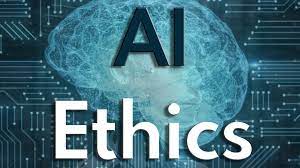Introduction
As artificial intelligence (AI) continues to permeate various aspects of our lives, the prospect of using AI to create timeless experiences raises profound ethical considerations. Timeless experiences, defined by their enduring impact and ability to transcend temporal constraints, have the potential to reshape the way we perceive and engage with the world. This article delves into the ethical implications of integrating AI into the creation and facilitation of timeless experiences.
Defining Timeless Experiences in the AI Era
Before delving into ethical considerations, it’s essential to define what constitutes timeless experiences in the context of AI. Timeless experiences go beyond fleeting moments; they encapsulate the ability to evoke lasting emotions, resonate across generations, and transcend the limitations of time. AI’s role in crafting and curating such experiences introduces novel ethical dimensions.
Privacy and Personalization Dilemma
AI-driven personalization is a cornerstone of crafting timeless experiences, tailoring content to individual preferences. However, the ethical dilemma arises concerning the use of personal data. Striking a balance between creating personalized, memorable moments and respecting individuals’ privacy is crucial to avoid overreach and potential misuse of sensitive information.
Cultural Appropriation and Authenticity Concerns
AI algorithms may draw inspiration from diverse cultural elements to create universally appealing timeless experiences. However, the risk of cultural appropriation and the erosion of authenticity looms large. Ethical guidelines must be established to ensure that AI-generated content respects cultural nuances and does not perpetuate stereotypes or distort historical narratives.
Unbiased Representation and Diversity in AI Creations
AI, being a product of human programming, inherits biases present in its training data. Ensuring unbiased representation and diversity in AI-generated timeless experiences is an ethical imperative. Striving for inclusivity and fairness becomes paramount to avoid perpetuating societal biases or inadvertently excluding certain groups from the narrative.
Emotional Manipulation and Informed Consent
The ability of AI to understand and manipulate human emotions introduces ethical concerns related to consent. Timeless experiences crafted by AI may intentionally evoke specific emotional responses. Striking a balance between emotional impact and ensuring individuals provide informed consent to participate in emotionally charged experiences becomes a critical ethical consideration.
Long-Term Psychological Impact on Individuals
The enduring nature of timeless experiences suggests a potential for long-term psychological impact on individuals. Ethical guidelines should address concerns related to the unintended consequences of AI-generated content, including its influence on mental health, emotional well-being, and the development of personal identity over time.
Accountability and Responsibility of AI Creators
The creators and developers of AI systems bear a significant ethical responsibility. Establishing clear lines of accountability for the outcomes of AI-generated timeless experiences is essential. This includes addressing unintended consequences, ensuring transparency in the AI’s decision-making processes, and acknowledging the potential impact on users.
Conservation of Human Creativity and Artistic Expression
While AI can contribute to creative processes, ethical considerations arise regarding the conservation of human creativity and artistic expression. Striking a balance between AI-augmented creativity and preserving the authenticity of human-driven artistic endeavors becomes crucial to maintain the integrity of cultural and creative landscapes.
Mitigating the Risk of AI-Induced Dependence
Relying extensively on AI for the creation of timeless experiences introduces the risk of societal dependence on algorithmic decision-making. Ethical frameworks must address concerns related to diminishing human agency, fostering an overreliance on AI, and potentially sidelining human creativity and intuition in the pursuit of timeless moments.
Environmental Impact of AI-Generated Experiences
The computational power required to facilitate AI-generated timeless experiences comes with an environmental cost. Ethical considerations should extend to mitigating the carbon footprint associated with AI operations. Striving for sustainability in AI development and deployment aligns with ethical principles and contributes to a responsible approach to technological innovation.
Conclusion
The ethical dimensions of integrating AI into the creation of timeless experiences necessitate careful consideration and responsible deployment. Striking a balance between personalization and privacy, addressing cultural sensitivities, ensuring diversity and representation, and fostering accountability are crucial aspects of navigating the intersection of AI and the timeless pursuit of enduring, impactful experiences. As AI continues to evolve, ethical frameworks must evolve in tandem to shape a future where timeless experiences enrich lives without compromising fundamental ethical principles.

